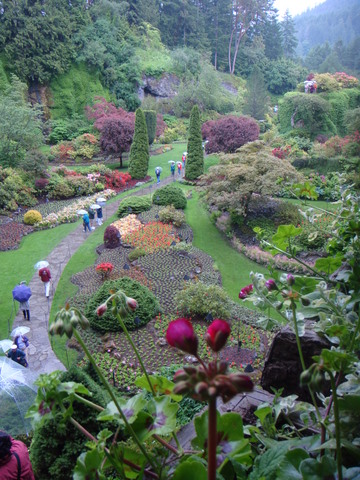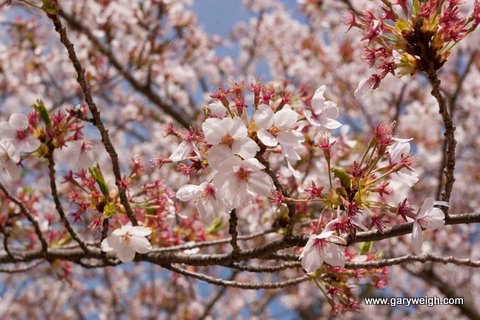Shukan News 12th December
Griffith Aikido Brisbane – learn Aikido
Beginners welcome 6.30pm Tuesday 3rd January 2012
If you have any contribution for the Shukan News (story, photograph, video), please send it via email to gary@garyweigh.com
1. Membership changes in 2012
2012 membership renewal is due from Tuesday 3rd January. Griffith Aikido Institute Inc. has made a few changes to its membership rules for 2012, as well as the casual training fee structure:
- Ordinary membership will be offered only to those who consider their home dojo to be Griffith Aikido. Your home dojo is the place where you train regularly (or would normally train) and where you grade; and / or where you are accredited to teach.
- To become a member of Griffith Aikido in 2012, you must complete and sign the membership application form, thereby agreeing to the club’s media policy and to abide by its other policies (e.g. safety, grading, health, behaviour, discrimination, bullying, harassment etc). Hard copies of our policies will be available at the front desk. You must also complete a medical form and ensure that you have signed an indemnity form. You will become a member (new or renewing) when the committee approves your application at its following monthly meeting.
- Membership rates remain the same at $30 for adults and $15 for children and students. These rates will now apply from 1 January through to 30 September. If a person is accepted into the club after 30 September, the membership fee will be waived.
- Every member, including multiple members of the same family, must pay membership fees although, in the case of Everton Hills’ members, membership fees will be paid directly to The Hills PCYC. Family concessions will be applied to training fees only, and be determined on a case by case basis.
- If your membership application is not approved, all money paid will be refunded in full and you will be advised of the committee’s decision in writing.
- Members of other clubs are most welcome to visit us and cross train at our dojos. The visitor rate is a flat $12 per class regardless of rank. Free training for visitors who are Nidan rank or above has been abolished.
- We have introduced a ‘sister dojo’ casual class rate of $7 to encourage Griffith members to travel across town and visit their sister dojo (either Everton Hills or Nathan). The casual class rate for Nathan members training casually at Nathan dojo remains at $10.
- Otherwise, the adult training fee structure and the Aikikids training fee structure remains unchanged.
2. Aikido National Geographic
Mike sent this National Geographic clip in. It is one person’s journey to meet some of the most respected Aikido instructors in Japan. It is 46 minutes long and will make good holiday viewing.
3. Slow down and smell the roses
 When I first started work, the job I do now didn’t exist. Bill Gates was 14 years old and had been programming computers for a year or so. In those days, I could actually do mental arithmetic. Electronic pocket calculators, personal computers and spreadsheets had not been invented, yet it was the year that Neil Armstrong walked on the moon.
When I first started work, the job I do now didn’t exist. Bill Gates was 14 years old and had been programming computers for a year or so. In those days, I could actually do mental arithmetic. Electronic pocket calculators, personal computers and spreadsheets had not been invented, yet it was the year that Neil Armstrong walked on the moon.
As a child, I listened to the radio and read books for pleasure. I went to the movies with my family. Every Sunday we sat down to Mum’s roast lunch. I visited my grandparents, aunts and uncles regularly. Close connection with extended family was considered important.
When the first black and white television sets appeared in the windows of the local hardware and electrical store, I joined family and neighbours on the footpath after closing time and stared through the shop window in amazement.
Now, in the digital age, there is barely a household in the country that doesn’t have one or two big screen TVs. The internet, the mobile phone and now the iphone mean that we are connected to the entire world.
But we are not really connected; not in the old fashioned sense. What we now mean by ‘connected’ is that the whole world and most of the information in it is available to us electronically at the click of a mouse.
Yep! I even remember when the word ‘mouse’ had only one meaning – the little furry animal with a long tail.
Today, we seem to have every choice of every food, experience, product and service thrust at us, yet we are not necessarily better off. In fact, the advent of the credit card and instant retail gratification has contributed to more than 2 million Australians meeting the definition of poverty.
We have every labour saving device available, yet we are still short of time. We are overloaded with communication technology, yet we are socially starved with less face-to-face personal interaction than ever before.
We are conditioned by our social system to get busy and stay busy, at the risk of being called ‘lazy’ if we take time out for ourselves or simply do nothing. Stress and lifestyle over-indulgence takes its toll on our health even though there have been more medical break-throughs over the last 100 years than there have been since time began.
 So what’s the rush? We will all get to the end soon enough! Maybe it’s time to slow down and smell the roses. They will not bloom forever. Take time out to deliberately enjoy the experiences of life, moment by moment. Connect with real people, not their facsimile via keyboard words and pixels.
So what’s the rush? We will all get to the end soon enough! Maybe it’s time to slow down and smell the roses. They will not bloom forever. Take time out to deliberately enjoy the experiences of life, moment by moment. Connect with real people, not their facsimile via keyboard words and pixels.
- Talk instead of email or text
- Read for pleasure
- Enjoy a meal together
- Have a good laugh
- Don’t just travel, stay a while
Being too busy dulls creativity and productivity, resulting in a lack of enthusiasm and in many cases, burn-out. It is OK to take some time to enjoy being alive; to appreciate the wonderful world around us; and to dream of the things we still want to do.
Founded by Carlo Petrini, the Slow Movement started in the late 80’s as a foodie fight back against the opening of a McDonald’s restaurant on Rome’s Spanish Steps. Slow Food gave birth to Slow Cities and a host of slow activities aimed at reconnecting with people and life’s simple pleasures.
Slow living is about reconnecting with food, people and places, but not in an anti-work or even anti-capitalist way. In fact as Carl Honoré says in his book, In Praise of Slow, “The secret is balance. Instead of doing everything faster, do everything at the right speed. Sometimes fast. Sometimes slow. Sometimes somewhere in between!”
 Practicing Aikido is a perfect way to live slowly. It is an art that works just as well slowly as it does quickly. It is two hours of switching off to the outside world and switching onto a connection with ancient Japanese tradition in an environment of respectful peace and quiet.
Practicing Aikido is a perfect way to live slowly. It is an art that works just as well slowly as it does quickly. It is two hours of switching off to the outside world and switching onto a connection with ancient Japanese tradition in an environment of respectful peace and quiet.
Some of the slow living aspects of Aikido include:
- Leaving stress and the day’s worries at the dojo door
- Interacting with good friends two or three times a week
- Complete relaxation, particularly of the neck, shoulders and arms
- Deep slow breathing to aid relaxation and Ki extension
- Direct connection with a variety of training partners
- Developing an alert calmness of the mind
- Increased awareness and anticipation in the moment
- Self healing
All those benefits and it is a very effective martial art as well. No wonder it is colloquially referred to as the art of peace!
4. Last thought for the year
“Christmas, my child, is love in action” Dale Evans
And finally…
This is the last Shukan News for the next 3 weeks. I would like to take the opportunity to wish you all a Merry Christmas and a Happy New Year. See you on the mat in 2012.
-Gary
